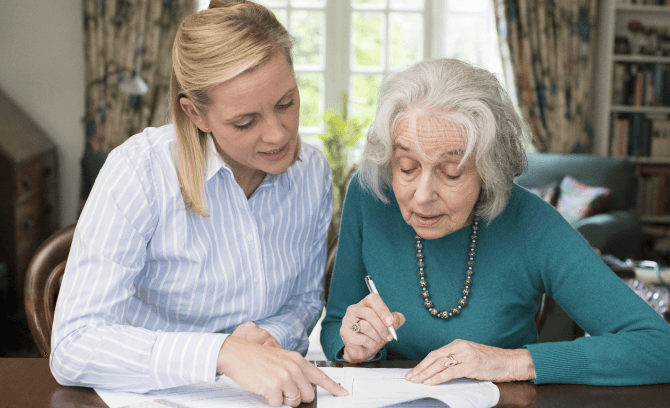Nursing home abuse is a pervasive issue that often goes unnoticed and unreported. It manifests in various forms, including physical, emotional, and financial abuse. The elderly, who are supposed to be cared for and respected, find themselves in vulnerable situations, subject to mistreatment. The Centers for Disease Control and Prevention (CDC) reported that nearly 30% of 14,000 nursing homes surveyed in March 2022 had staffing shortages, exacerbating the problem.
Types of Abuse
Physical abuse involves actions like hitting or shoving, while emotional abuse may include yelling or humiliation. Financial abuse often involves unauthorized use of the resident’s assets. The prevalence of these types of abuse is alarming, and what’s worse is that many cases go unreported due to fear or lack of awareness among residents.
Financial Aspects and Profit-driven Motives
The financial dynamics of nursing homes often contribute to the neglect and abuse of residents. Many facilities operate on a for-profit basis, focusing more on financial gains than on the well-being of their residents. This profit-driven motive can lead to staffing shortages and inadequate care, as funds are diverted away from essential services.
Misuse of Taxpayer Funds
Taxpayer money that should be used to ensure quality care for the elderly is often misused. This not only compromises the quality of care but also puts the residents at greater risk of abuse and neglect.
Recognizing the Signs and Symptoms
Recognizing the signs of abuse is the first step in combating this issue. Physical indicators may include unexplained injuries, weight loss, or poor hygiene. Behavioral changes like withdrawal, increased fear, or anxiety can also be warning signs.
Financial Discrepancies
Unexplained changes in a resident’s financial situation or missing personal belongings can be red flags for financial abuse. It’s crucial for family members to be vigilant and take immediate action if they notice such discrepancies.
Rights and Legal Recourse
Residents of nursing homes have specific legal rights, including the right to be treated with dignity and respect, the right to privacy, and the right to voice grievances without fear of retaliation.
Reporting Mechanisms
If you suspect abuse, it’s crucial to document all incidents and report them to the appropriate authorities. This could be the nursing home’s management or state health departments.
Seeking Legal Assistance
Legal action may be necessary to hold the perpetrators accountable. Consulting a qualified attorney can provide you with the guidance needed to navigate the legal landscape. For more information on how to proceed with a nursing home abuse case, you can find valuable resources and advice from experts seen here on Union Law Firm.
Understaffing and Its Consequences
Understaffing is a significant issue in many nursing homes, often leading to neglect and, in severe cases, abuse. When there are not enough staff members to provide adequate care, residents suffer.
Relationship with Increased Abuse Incidents
The lack of sufficient staffing levels is directly related to increased incidents of abuse. Overworked and stressed caregivers are more likely to make mistakes or engage in neglectful or abusive behavior.
Medication Misuse and Physical Restraints
The misuse of medication and physical restraints in nursing homes is another grave concern. Residents are sometimes overmedicated or restrained to make them more “manageable,” which is a violation of their rights.
Consequences of Overmedication
Overmedication can lead to a range of health problems, including cognitive decline and physical frailty, making the residents even more vulnerable to abuse.
Prevention, Vigilance, and Regulations
Preventing abuse requires collective action. Families, caregivers, and regulatory bodies must work together to ensure the safety and well-being of nursing home residents.
Importance of Stricter Oversight
Stricter regulations and oversight are needed to hold nursing homes accountable. Regular inspections, transparent reporting mechanisms, and stringent penalties for violations are essential steps in this direction.
The Role of Technology in Monitoring and Prevention
In today’s digital age, technology can play a significant role in monitoring and preventing abuse in nursing homes. Surveillance cameras, for instance, can be installed in common areas to keep an eye on staff behavior and resident interactions. While this raises questions about privacy, the benefits in terms of safety can be substantial.
Digital Health Records
The adoption of digital health records can also facilitate better care. These records can be updated in real-time, allowing for more accurate medication management and reducing the risk of overmedication or medication errors. Moreover, any signs of abuse or neglect can be flagged immediately, triggering an investigation.
Family Involvement and Support
Family members must be proactive in the care of their elderly loved ones. Regular visits, surprise checks, and constant communication with nursing home staff can go a long way in preventing abuse.
Emotional Support
Providing emotional support is equally important. The elderly often do not report abuse out of fear or shame. Open lines of communication can encourage them to speak up, ensuring that any issues are addressed promptly.
The Moral Imperative
At the core of this issue is a moral imperative. We owe it to our elders to provide them with a safe, respectful, and dignified environment in their twilight years. They have spent a lifetime contributing to society and nurturing younger generations. It is our turn to ensure they live out their remaining years with the peace and respect they so richly deserve.
By incorporating technology, encouraging family involvement, and adhering to a moral code of conduct, we can make significant strides in combating nursing home abuse. These additions not only provide practical solutions but also emphasize the ethical responsibility each one of us holds in this critical matter.
Addressing nursing home abuse is a collective responsibility. By staying informed, recognizing the signs, and taking appropriate action, we can create a safer environment for our elderly loved ones. It’s high time we prioritize their well-being over profits and take decisive steps to break the chain of neglect and abuse.

